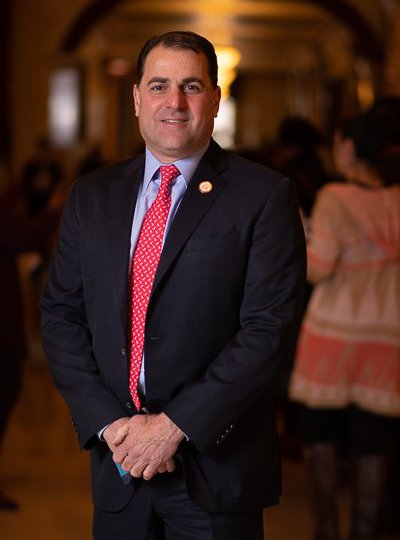
New Jersey has had a medical marijuana program in place since 2010, but up until recently it was not as expansive as it should be in order to be available to those in need. While over the past 18 months the medical cannabis program has more than doubled, offering relief to New Jerseyans fighting cancer, suffering from epilepsy and PTSD, and living with various other health conditions, we need to do more.
The Murphy administration has made significant strides, but it cannot do it alone and it can’t be fully accomplished by administrative or executive actions. If the program is going to continue to grow and improve the quality of life for patients across the state, it should be expanded through statute. The Legislature can and should act to advance this industry in the state with legislation that would expand the program; we should not tie its fate to the recreational marijuana bill.
We should move forward with the bill that would expand the medical marijuana program so that its full potential can be realized while the debate and discussion about legalizing adult-use cannabis continues. Although I personally have not been convinced that recreational marijuana is right for our state today, I am convinced that there is enough support in the Legislature for legislation to expand the medical marijuana program on its own merit.
Medical cannabis has the potential to transform the way we treat physical and mental illness. Cannabis has been used for medicinal purposes for more than 3,000 years, and there is a growing body of scientific research documenting its safety and effectiveness. It has been found to be a beneficial course of treatment for a long list of medical problems, especially for long-term or lifelong illnesses. For people suffering from chronic pain, cannabis offers relief without the negative side effects or highly addictive properties of opioids. Allowing cannabis as an alternative pain reliever could help address the opioid crisis in the state.
We must ensure that patients’ access is not hindered by unreasonably long processing times and that we are open to adding new eligible conditions as credible research arises. Ensuring ease of access for those prescribed medical cannabis is crucial. Dispensaries closely monitor the quantities and strains given to patients, making sure the product is being used as intended and providing the intended result. Controlling these factors is key to cannabis functioning as an effective form of treatment.
Some argue that there is not enough research on the negative and positive effects of medical cannabis, but there is little opportunity for doctors to engage in cannabis research because of state and federal laws. Allowing clinical research in the state of New Jersey has the potential to put us at the forefront, drawing doctors from up and down the East Coast to our state. We have some of the best institutions of higher education in the country; we should allow their medical students to engage in this groundbreaking research.
The medical marijuana bill under consideration allows physicians and other health care providers to prescribe cannabis for any diagnosed condition, not just those already prescribed by law or state policy. It would also expand access to designated caregivers, including those in hospitals or nursing homes, substantially increase the amount patients could obtain, allow terminally ill patients unlimited amounts and provide new legal protections for participants. The bill would allow physician assistants and advanced practice nurses to authorize patients for medical cannabis.
For the cancer patient struggling to eat, for the terminally ill in constant pain, for all those suffering with conditions cannabis can help, we must make this program the best it can possibly be — and this can only be fully realized through legislation.
Paul Sarlo, a Democrat, represents the 36th Legislative District in the New Jersey state Senate, where he is the deputy majority leader and chairman of the Budget and Appropriations Committee.

